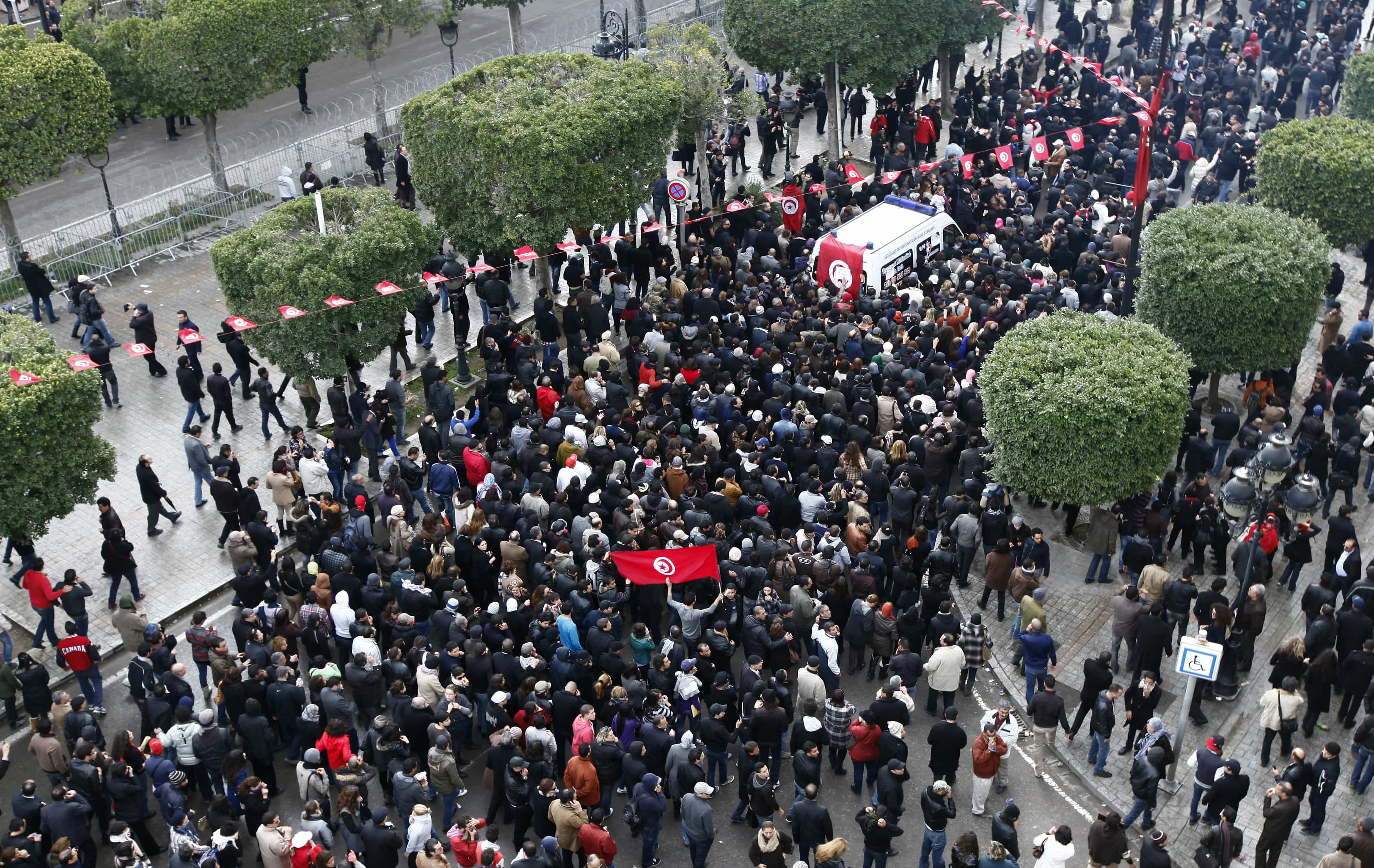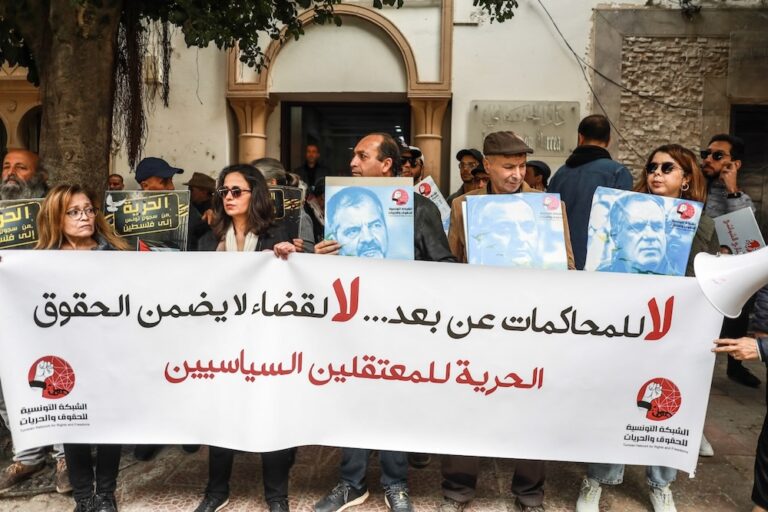The killing of opposition political figure Chokri Belaïd takes place amid repeated incidents of political violence and assaults on persons, apparently because of their political or cultural views, carried out by individuals or groups who appear motivated by an Islamist agenda.
(Human Rights Watch/IFEX) – 6 February 2013 – Tunisian authorities should ensure that those responsible for the assassination on February 6, 2013 of the prominent opposition political figure Chokri Belaïd are brought to justice, Human Rights Watch said today. Tunisian authorities should immediately investigate the circumstances of the killing and prosecute those responsible.
Although the killers’ motives are still unknown, it may be the first politically motivated assassination since Tunisians ousted President Zine el Abidine Ben Ali in January 2011.
“This assassination is the gravest incident yet in a climate of mounting violence,” said Eric Goldstein, deputy Middle East and North Africa director at Human Rights Watch. “Since Tunisia’s revolution, there have been violent assaults against journalists, political activists, artists, and simple citizens, many of which the authorities did not investigate, let alone prosecute.”
The killing takes place amid repeated incidents of political violence and assaults on persons, apparently because of their political or cultural views, carried out by individuals or groups who appear motivated by an Islamist agenda. In numerous cases, the authorities appear to have taken insufficient action to investigate and prosecute those responsible, and to prevent further threats to the life and security of the victims. Human Rights Watch documented several cases where victims had filed complaints at local police stations or before judges, but never received any indication of a follow-up to their cases.
Assassins shot Belaïd point blank several times as he was entering his car on the morning of February 6 near his home in the Menzah 6 neighborhood of Tunis, and then fled on a motorcycle, Interior Ministry said. Belaïd was 48, married and the father of two.
Belaïd was secretary general of the leftist Democratic Patriotic Party. He was an outspoken critic of the government, in which the Islamist Ennahdha is the leading party in a coalition with two other parties, Ettakatol and the Congress for the Republic. He spoke on February 5 at a news conference in Tunis in which he denounced the “climate of violence that has become organized and systematic,” and called for a “national dialogue to contain the trend of violence.”
On February 2, a group of people violently disrupted a public meeting in Le Kef of the Popular Front, the coalition of left-leaning parties that Belaïd co-founded. Belaïd accused the assailants of belonging to the Leagues for the Protection of the Revolution, an association that has been implicated in confrontations with opposition parties around the country, including one that led to the fatal beating of an opposition activist in Tataouine in October 2012.
After the assassination of Belaïd, mobs attacked local offices of Ennahdha party in several cities, including Sidi Bouzid, Sfax, and Monastir, causing property damage.
“The killing of Belaïd has shaken a country that prides itself on having a nonviolent political culture and has had no prominent political figure assassinated in half a century,” Goldstein said. “To stop the recent spiral of violence, authorities should vigorously and speedily investigate and prosecute this murder, along with the recent politically motivated assaults on people and property.”



